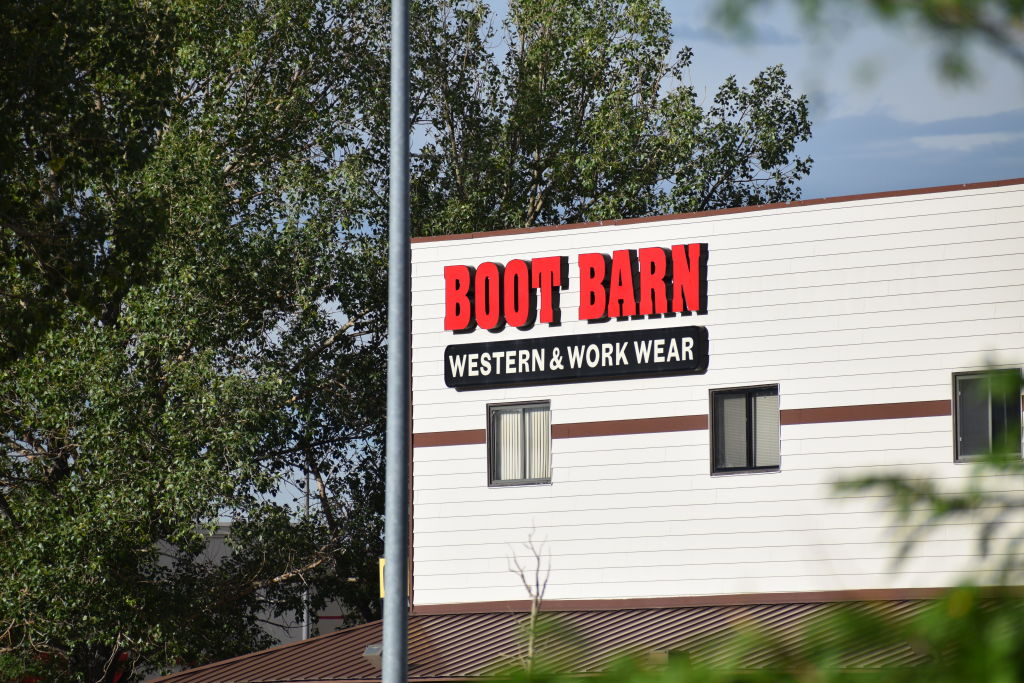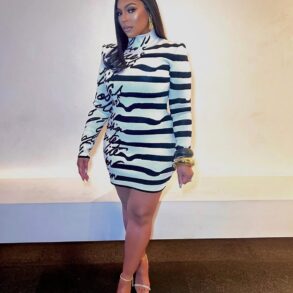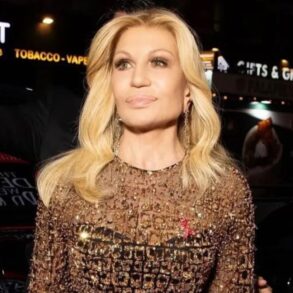
Now is a good time to be in the denim and activewear categories.
Wall Street analysts with TD Cowen and UBS have looked into fashion trends with staying power, and they’ve identified Levi Strauss, Lululemon, Boot Barn and Wrangler and Lee Jeans owner Kontoor Brands as the companies they think investors should bank on.
TD Cowen thesis
On a call TD Cowen hosted with fashion trends expert Leslie Ghize, executive vice president at The Doneger Group, she said both denim and activewear combine versatility, comfort and technology. That translates to attractive growth for denim and activewear as “innovative leaders offer new dressy active styles” and “fuller and wider leg cuts with lower rises,” which keys into Gen Z consumer preferences.
A TD Cowen report noted that with near record heat into the back-to-school and fall season, denim sales were better heading into August and September, but then slowed as shoppers focused more on buying knit tops, fashion seamless basics, non-denim bottoms and jackets. Risks ahead include a warmer and wetter holiday shopping period from Black Friday to Christmas, which could drive more promotions for apparel, seasonal goods and sweaters and outerwear.
Denim and Levi Strauss
TD’s Oliver Chen is bullish on the denim cycle, particularly as Ghize highlighted the growth potential of denim as a multi-purpose wardrobe staple. Moreover, a sustained casualization cycle is driving demand for a wider range of styles. Chen noted that a global rise in patriotism, particularly in the U.S., should provide a rising tide for denim, given its traditional rugged and iconic heritage look and symbolism for the working class.
“The continued popularity of Americana and workwear styles are manifestations of this trend, with the appropriation of items like Carhartt dungarees and work jackets among Gen Z and urban/higher income groups,” he wrote in a research note. “This is also supported by the rise of the ‘New-Gen Worker,’ who generally holds a higher opinion of skilled trade (farming and ranching, food processing, tourism, etc.) below traditional white-collar jobs.”
Chen last month initiated coverage on Levi’s, noting that TD Cowen’s proprietary research indicated denim is the “most desirable bottoms category.” Following the call with Ghize, Chen said there’s a big opportunity for Levi’s to partner with “high-design and culturally relevant icons,” with recent collaborations including K-pop girl group NewJeans and streetwear icon Nigo.
Chen pointed out that Levi’s needs to improve its supply chain agility, and recently met with the chief financial officer Harmit Singh, who also serves as chief growth officer. Chen’s takeaway? “We like continued newness across fits and fabrics and [distribution center] investments, which should improve supply chain agility,” he said. “We continue to believe that Levi’s continues to enjoy a long runway of growth, underpinned by an iconic brand, broadening product and growing direct-to-consumer globally.”
Lululemon and activewear
TD Cowen’s John Kernan believes that Lululemon still has what it takes to keep the “Outperform” rating he has on the company’s stock.
Even with the transition to denim post-COVID as shoppers shifted their focus to more appropriate office attire, activewear and athleisure still have a long runway ahead as the category evolves now that “polishing up” trends take hold.
Kernan points to comments from Ghize about new brands such as Alo Yoga and Vuori leaning into social sports, a category Lululemon started focusing on that it calls “play,” which includes tennis, golf and hike. And while Lululemon’s growth trajectory hit $8 billion in sales in Fiscal Year 2022, newer players will continue to invigorate the category.
Kernan said that disruption in activewear largely centers on innovation in materials and merchandising. He sees new premium players like Alo Yoga, Vuori and Rhone helping to drive change as they face aging consumers and have to evolve to acquire new customers and maintain their relevance.
Boot Barn and Western wear
TD Cowen’s Max Rakhlenko said the total addressable market for core Western business is “well positioned” for growth over the next few years regionally, even as the popularity of Western fashion fits nationally could begin to subside. Ghize cited population growth in the southern and western U.S. In addition, the category now has distinct subcategories, such as farmer and gardener core, country music and festival dress.
Rakhlenko said Boot Barn has “one of the more compelling growth opportunities in retail,” noting a long-term opportunity in the “attractive $40 billion Western and Work industry.” Moreover, the company is still in its early stages of store expansion, with management thinking the business can support more than 900-plus doors over the long term across the U.S.
UBS on Kontoor Brands Inc.
Despite issues with U.S. wholesale dynamics, UBS softlines and retail analyst Jay Sole has a “Buy” rating on shares of Kontoor Brands.
Sole expects 2-3 percent growth in the denim industry, with emerging markets fueling strong sales gains. “Improved product innovations capabilities from several denim players should be a second driver. Plus the trends towards comfort and more causal dress should help to drive the category’s sales,” he said.
For Kontoor, Sole is forecasting a 2 percent five-year compound annual growth rate based on its strategic initiatives. He said the company could drive revenue growth through new wholesale partnerships, share gains within existing wholesale partnerships and expansion of its direct-to-consumer channel in China and digital.
The analyst said that UBS’s proprietary data shows Kontoor’s Wrangler and Lee Jeans brands remain among the top U.S. jeans labels. According to its Amazon Best Sellers tracker, Wrangler and Lee were up 270 basis points and 200 basis points year-over-year, respectively, in men’s jeans during the third quarter. Wrangler women’s jeans were up 180 basis points over the same period, although Lee’s share in women’s fell 390 basis points. That said, online traffic at Wrangler and Lee’s websites were up double digit and low teens year-over-year, respectively.
Sole thinks that despite some pluses, conservative wholesale buying will keep Kontoor from raising its Fiscal Year 2023 earnings per share outlook when it posts third quarter results.
Kontoor in April launched its Global Design Standards, a three-part guide on how to lower the environmental and social impacts of its jeans brands. The Standards address greenhouse gas emissions, water and chemical use. It focuses on three areas: preferred materials, low-impact fabrics and low-impact finishing.
This post was originally published on this site be sure to check out more of their content.








